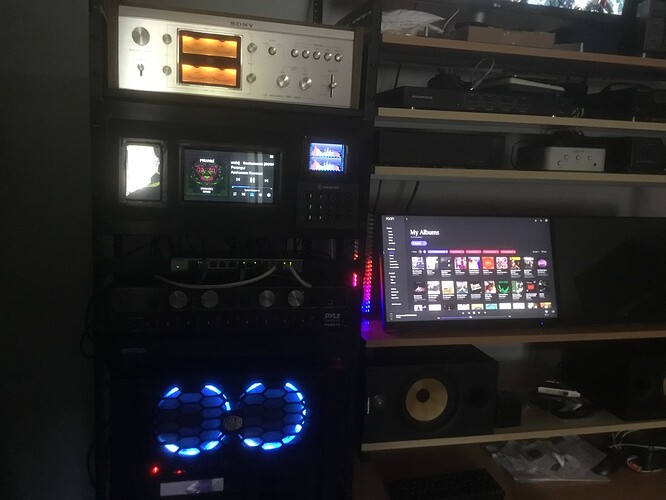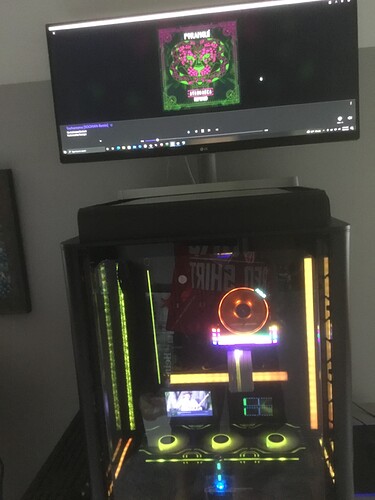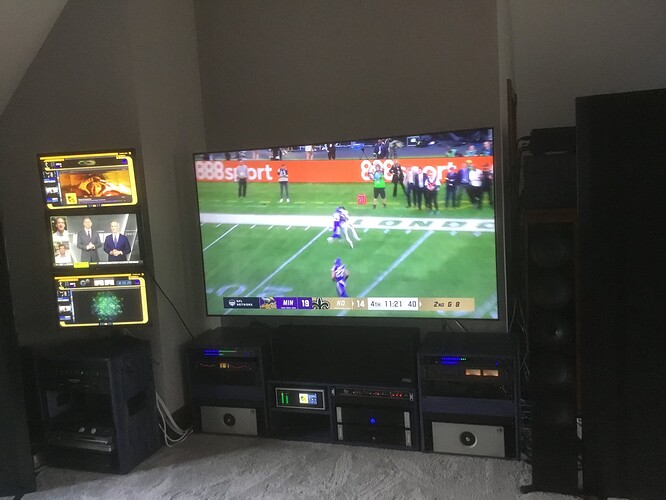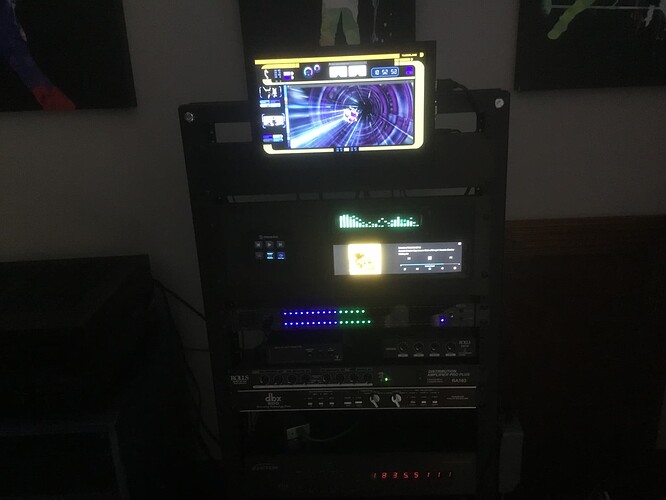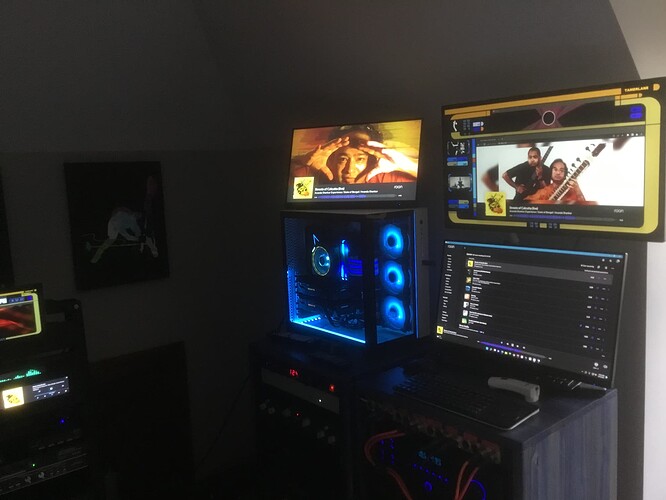So I’ve been a heavy Roon user since 2017. I’ve custom built probably 6 Windows 10-11 Roon cores, and have built my entire audio system around Roon’s capabilities.
When someone sees my system, they take a breath because my system isn’t a DAC, amp, and speakers. It’s more like the bridge of the starship enterprise - Roon remote control points, VU meters, “now playing” artist and album displays, everywhere, throughout an 800 square foot room.
This means my Roon Core runs:
-
4 grouped audio zones (main zone for listening, 3 play to the system audio outputs on different windows machines to run visualizations and audio meters
-
5 Windows 10 remotes plus an iPad and an iPhone running remote app
-
Roon Web Controller extension outputting to several browsers
-
Roon Stream Deck Extension
-
2-3 Roon Web/Chromecast displays
-
Volume leveler and occasionally DSP
My Roon Core is as built out as I could make it. 8 core 11th Gen i7 (3.60), 32GB, PCIE4.0 M2 drive, etc. Everything is hard wired via 10Gb backbone and at least 2.5Gb network adapters. The local collection is on a big HDD locally on the Roon core so no inbound data stream with local files. No wifi except the apple mobile devices.
Except Roon can’t run all this stuff. It will constantly de-authorize the Roon extensions; album and artist images don’t update; occasionally a remote will go back to the Roon squid logo; and ultimately it will start telling me that files are loading slowly and stop playing. Reboot will fix it temporarily but by the time I get all the peripheral stuff loaded back in, it starts again. After much repetition, it is clear that I am overloading Roon’s capabilities.
I’m not going to stop trying to build out this system, so I need ideas as to how to better stabilize Roon. A few ideas and concerns:
—Mock/Rock? I don’t think it supports robust enough hardware to enable the processing power need
—More RAM? it doesn’t seem to be running out of RAM, albeit Roon gets up to 7GB
—Upgrade to Win 11? Doesn’t seem like it would be the answer.
—Update Web controller to 2.0? Does it tax Roon less than 1.2?
—Linux build? Learning curve for this Windows veteran. Would it really make it more reliable?
Does anyone else run Roon as hard as I do? Is it rock solid? Ideas?
